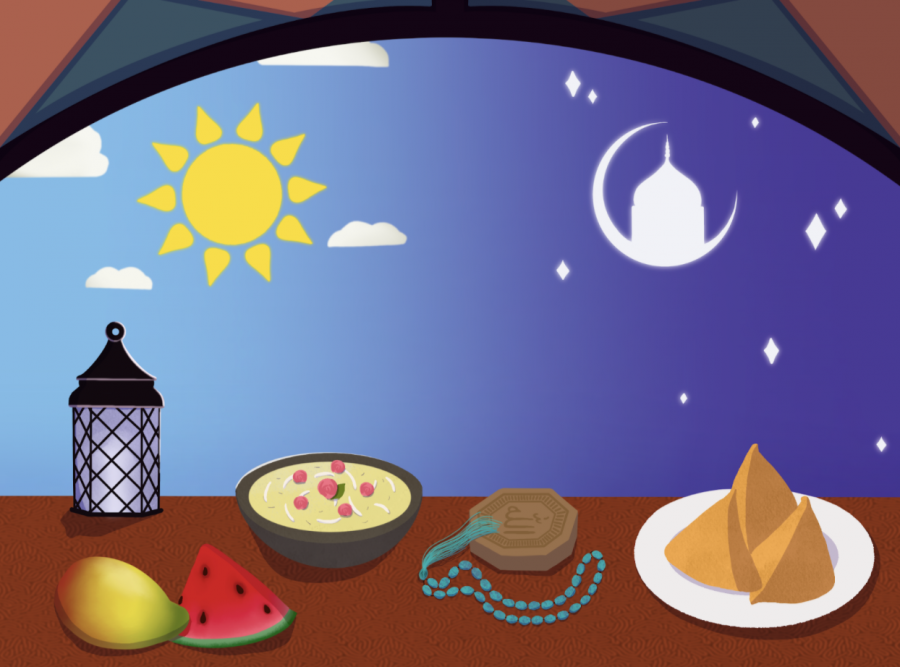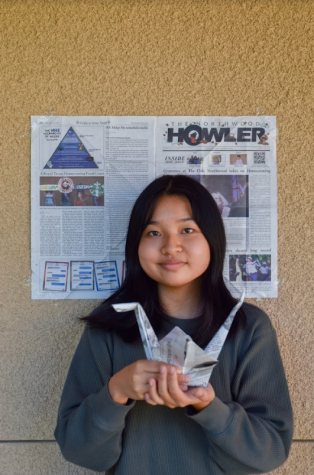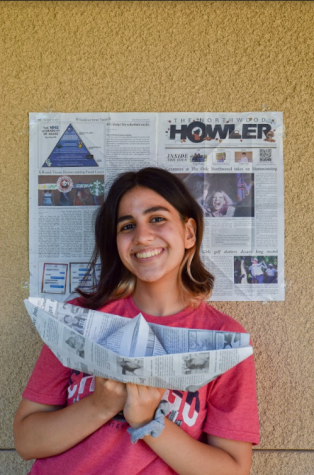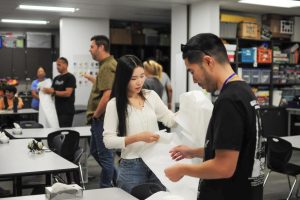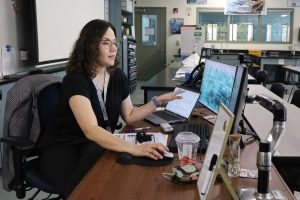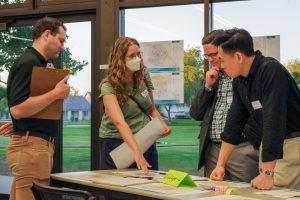Ramadan Traditions
Crispy samosas, tangy fruits and creamy Sheer Khurma make their way onto the table as sunset arrives. In the meantime, a clay tasbih, etched with ritual recitations, attached to beads known as the mohr are used as a physical guide during prayer.
May 11, 2021
Every year, nearly 1.6 billion Muslims across the globe partake in spiritual reflection by celebrating the holy month of Ramadan, beginning with the first day of the ninth month of the Islamic calendar. Historically, the ninth month begins with the sighting of a new crescent moon, and this year, Ramadan began on April 12 and ends at sunset on May 12.
Derived from the Arabic roots “ramidha” رَمِضَ and “Ar-Ramad” الرَمَضُ, Ramadan directly translates into “scorching heat,” alluding to the burning away of one’s sins through spiritual fulfillment. The 30-day period is used to celebrate the emergence of the Quran, a sacred text from Allah known as one of the core pillars of Islam. It is believed that during this month, the first revelations of the Quran were revealed to prophet Muhammad during Laylat-al-Qadr, also known as the Night of Power.
To commemorate this, Muslims partake in fasting from sunrise to sunset, avoiding any food, liquids and oral medications for the time period. A normal day during Ramadan begins around 4-5 a.m. with Suhoor, the first meal of the day.
“I usually wake up an hour to 45 minutes before sunrise, and we mainly eat eggs, fruits, toasts and drink lots of liquids, especially water,” sophomore Yusrah Khan said. “For both morning and night prayers, we engage in wudhu where we wash our hands, face, nostrils and feet three times to be pure before praying.”
The daily fast is later broken at sunset during Iftar, opening with an appetizer meal usually consisting of samosas, pastries or chickpea dishes. There are often exceptions to fasting for those ill, menstruating or traveling.
Ramadan ends with the sighting of a new crescent moon and brings on the three-day celebration of Eid al-Fitr, known as the “Festival of Breaking Fast” that spills into Shawwal, the 10th month of the Islamic calendar. Common traditions include volunteering at soup kitchens, visiting communal prayer areas and giving eidi, small gifts from elders to children, in the form of money, along with visiting friends and family in larger gatherings. However, these traditions vary by household even among Northwood’s Muslim students.
“I love helping my mom make Sheer Khurma, a traditional milk and date pudding with dried nuts and saffron, the night before Eid,” Northwood’s Muslim Student Association president junior Zoya Khan said. “I look forward to Eid because the whole community comes together before we start the day off, and it’s touching to see people even from different ethnicities unite to celebrate a common cause.”
Despite varying traditions, the celebration of Ramadan across the globe is a true demonstration of how Muslims across the world are ultimately connected by their shared love for faith, charity and ethnic history.



















































